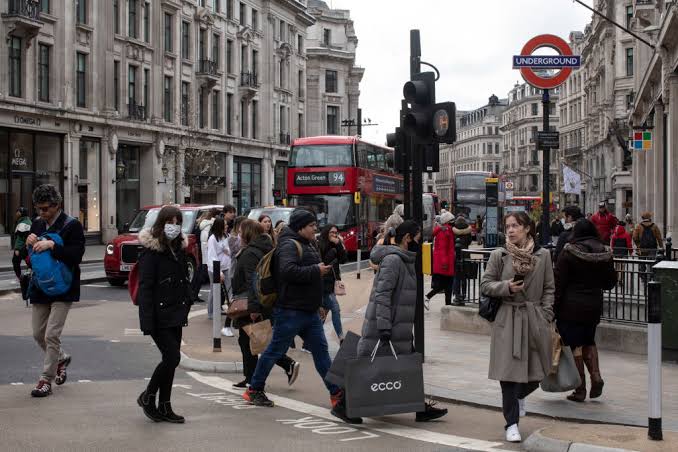

The United Kingdom (UK) inflation dropped to its 2% target for the first time in nearly three years in May 2024.
While Prime Minister Rishi Sunak welcomed the fall in headline inflation in May, it has likely come too late to turn around his fortunes in British elections on July 4 or to prompt a Bank of England rate cut on Thursday.
Office for National Statistics data showed services price inflation, which the BoE thinks gives a better picture of medium-term inflation risks, was 5.7%. That was down from 5.9% in April, but higher than the 5.5% economists had forecast in a Reuters poll or the 5.3% predicted by the BoE last month.
Sterling rose modestly against the dollar and the euro after the data, but British government bonds underperformed as investors bet the BoE would delay following the lead of the European Central Bank, which cut rates earlier this month.
“Services CPI continues to print to the upside (which) we think removes any lingering risk that the Monetary Policy Committee might announce a cut to Bank Rate tomorrow,” said Cathal Kennedy, senior UK economist at RBC Capital Markets.
UK exits recession with 0.6% GDP growth
The drop in annual consumer price inflation from April’s 2.3% reading – in line with economists’ expectations – took it to its lowest since July 2021 and marks a sharp decline from the 41-year high of 11.1% in October 2022.
The fall has been sharper than in the euro zone or the United States, where consumer price inflation in May was 2.6% and 3.3% respectively, belying concerns a year ago that British inflation was proving unusually sticky.
Inflation first began to pick up in most Western economies in the second half of 2021 due to bottlenecks from the COVID-19 pandemic, then surged after Russia’s full-scale invasion of Ukraine in February 2022 caused natural gas prices to soar.
Consumer prices in Britain are up more than 20% over the past three years, squeezing living standards and contributing to the unpopularity of Sunak’s Conservatives, who are around 20 points behind the opposition Labour Party in opinion polls.
Sunak said that the drop in inflation since he took over from his Conservative predecessor Liz Truss – whose fiscal policy triggered a surge in government borrowing costs – was evidence that his economic policies were working.
“Let’s not put all that progress at risk with Labour,” he added in a video clip.
Labour’s Rachel Reeves, who looks set to be Britain’s next finance minister after the election, said reelecting the Conservatives would bring “five more years of chaos”.
A yet-to-be-ascertained number of persons have been trapped after a building on Oremeta street in…
The Joint Admission and Matriculation Board (JAMB) has stated that its 2025 Unified Tertiary Matriculation…
By FUNKE EGBEMODE He was the lord of his manor. Whatever he said was law.…
The presidency has debunked reports that Vice President Kashim Shettima has been denied access to…
The United States Supreme Court has paused President Donald Trump's administration from deporting Venezuelan men…
Former Ekiti State Governor Ayodele Fayose has described the coalition of opposition political parties against…
This website uses cookies.